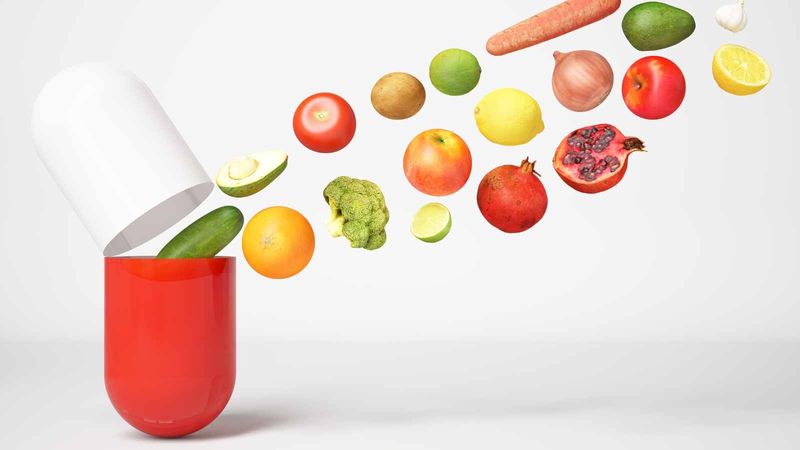21 Healthy Food Lies That You Should Never Believe
Eating healthy is one of the best things you can do for your body, but it can also be confusing. With so much conflicting advice and personal opinions, knowing what’s true and what’s not can be difficult. Sometimes, your preconceived notions about healthy eating may do more harm than good. Here are 21 of the most common food lies that you should never believe.
“Healthy Food Is Too Expensive”

You might believe that eating a healthy diet is expensive, but this isn’t true. Eating healthy doesn’t have to mean buying expensive brand-name items or organic produce – getting good quality ingredients and meals at affordable prices is possible. There are also plenty of recipes online that can help you save money on healthy meals.
“Products That Say “Healthy” on the Package Are Good for Me”

The term “healthy” is often used to market products that may not be good for you. Just because something says it is “healthy” or “low-fat” does not mean it is the best choice.
Most of these products are high in calories, sugar, or unhealthy fats. The nutrition facts label and ingredients list provides detailed information to ensure that what you are consuming is healthy; that should be your focus. Always choose minimally-processed, plant-based foods whenever possible.
“I’ll Start Eating Healthier Tomorrow”

Procrastination can be a major barrier to making healthy changes. It’s easy to make excuses and put off overhauling your diet until tomorrow or another time, but this can lead to further procrastination and prevent you from ever making necessary changes.
Rather than waiting for the perfect time to start eating healthier, why not take the plunge today? Small changes can make a difference, and you’ll begin to see results.
Related: These Processed Foods Are Bad for You. Steer Clear!
“One Unhealthy Meal Won’t Hurt”

While one unhealthy meal won’t derail your progress, it doesn’t help either. Eating healthily is all about making permanent changes to your diet, not just occasional ones. That’s why you should focus on forming habits that will improve your overall nutrition.
Choose meals from the five major food groups: fruits, vegetables, grains, protein, and dairy.
“Healthy Meals Require too Much Time”

Cooking healthy meals doesn’t have to take a long time. You can make quick and easy recipes with minimal effort and still get the nutrients you need. Look for recipes that only require a few ingredients or shorter cooking times, and invest in kitchen gadgets like electric pressure cookers or air fryers to make the process more efficient. Also, spend some time learning how to meal prep so you always have something healthy and convenient on hand.
“I Can’t Stick to a Diet”

Healthy eating isn’t about following a strict diet – it’s about making small changes that last for life. Making gradual changes is better than trying to overhaul your diet overnight. You can start by replacing unhealthy snacks with healthier options, such as fruit or nuts, and gradually increase the number of vegetables you eat.
“I Can’t Give Up My Favorite Foods”

You don’t have to cut out your favorite foods completely, but you can make smart swaps that are just as satisfying. For example, if you crave chips or cookies late at night, try swapping them for a bowl of air-popped popcorn with a sprinkle of cinnamon and sugar. Or if pizza is what you really want, try making a healthier version at home with whole wheat crust, low-fat cheese, and loads of vegetables.
“Healthy Eating Requires Abrupt Change in Lifestyle”

Instead of immediately removing all unhealthy snacks from your pantry, try gradually replacing them with healthier options until they are completely gone. Don’t worry if the change is slow – the important thing is that it’s consistent. Feel free to experiment with healthier alternatives to your favorite foods. With effort and dedication, you can create a sustainable lifestyle that will make you feel better.
“I’m Too Busy to Make Healthy Meals”

It’s easy to think that being busy is an excuse for not eating healthily. But this isn’t true! It’s possible to make healthy meals in a short time – you just need the right ingredients and some creativity. Consider pre-made options like roasted vegetables, frozen pizzas with whole wheat crusts and low-fat cheese, and whole grain tortillas with lean proteins. Also, cooking in bulk is a great way to ensure that you have healthy meals in the fridge or freezer for a limited time.
“I Don’t Need to Worry About Healthy Eating”

Everyone should be conscious of what they eat! Eating healthy isn’t just about looking great; it’s also about feeling good. Healthy eating can help prevent and even reverse chronic diseases like heart disease, stroke, and type 2 diabetes, which is why it’s so important to make the right food choices.
“I Don’t Need to Pay Attention to Portion Sizes”

Portion control is an integral part of any healthy eating plan. Consuming too much food can lead to weight gain, regardless of the nutritional value of the food. Measuring and determining proper portion sizes accurately is critical to maintaining healthy eating habits.
When eating out, split meals with friends or family or ask for a doggy bag to take the rest home. When cooking at home, use smaller plates to control the portion.
“I Don’t Need to Pay Attention to What I Drink”

It’s easy to forget that drinks can also contain calories and sugar. Sugary drinks like soda, energy drinks, and juice are high in calories and sugar yet low in essential nutrients. Be mindful of the amount of these beverages you consume, as they can quickly add up.
If you drink alcohol, consider low-calorie options or follow the one-drink rule and always alternate with a glass of water.
“I Don’t Need to Eat Breakfast”

Breakfast helps to boost your metabolism, provide energy, and improve cognitive performance. It is essential for a healthy lifestyle and high energy levels necessary for a productive and successful day. Breakfast doesn’t have to be complicated. A smoothie made with fresh fruit and yogurt, oatmeal with nuts and dried fruit, or an egg sandwich on whole grain bread are all quick and easy breakfast options.
Related: The 16 Best Breakfast Foods for Weight Loss
“I Can Eat Whatever I Want as Long as It’s in Moderation”

This statement is not necessarily true, even if you eat in moderation. Eating healthy is more than just limiting your consumption; it’s also about consuming the right foods and nutrients your body needs, like fruits and vegetables, lean proteins, whole grains, and healthy fats.
“I Don’t Need to Worry About Unhealthy Ingredients”

Just because a food product is labeled “healthy” or “low-calorie” doesn’t mean that it’s healthy. Many processed foods have high levels of sodium, sugar, and other unhealthy ingredients like artificial sweeteners, additives, and preservatives.
Read labels and pay attention to the nutritional value of the foods you consume. Choose items that are made with natural, whole ingredients and don’t contain any added sugars or fats.
“I Don’t Need to Plan My Meals Ahead of Time”

Meal prepping and grocery shopping in advance can save you time and money; it ensures that you are making healthier choices and keeps you on track, so you don’t end up grabbing unhealthy snacks or ordering takeout. It also helps reduce food waste since you only purchase what is necessary for your weekly meals. It may seem daunting at first, but with practice, it is easy.
“I Can Get All the Nutrients I Need From a Multivitamin”

A multivitamin is not a substitute for eating a healthy, balanced diet. Multivitamins are not intended to replace the vitamins and minerals in fruits and vegetables; they only provide small amounts of those essential nutrients. The best way to ensure your body gets all the necessary vitamins and minerals is to eat fruits and vegetables, lean proteins, nuts and seeds, complex carbohydrates, and healthy fats.
“I Don’t Need to Exercise”

Exercise is integral to a healthy lifestyle and improves overall health, brain function, and energy levels. Regular physical activity protects you against chronic diseases such as heart disease and diabetes and can also help reduce stress and boost your mood.
Incorporating aerobic and strength-training exercises into your routine can benefit your overall health, so get moving!
“I Don’t Need to Drink Water”

Drinking adequate amounts of water is essential for your health and well-being. Water helps to flush out toxins and impurities, keeps your cells hydrated, lubricates joints, and aids digestion. Staying hydrated can help improve your energy levels and digestive and skin health. Carry a reusable water bottle with you to stay hydrated throughout the day.
“I Don’t Need to Keep Track of What I’m Eating”

Keeping track of what you eat is a great way to monitor your food intake and ensure that you eat the right foods for your body. Writing down what you eat in a notebook or using an app to log what you eat can help you to identify any unhealthy patterns or decisions you may be making.
Tracking your meals can also help you to stay on track with your nutrition goals and hold yourself accountable for making healthier choices.
“Gluten-free Products Will Help Me Lose Weight”

Gluten-free products can be just as high in calories and fat as their gluten-containing counterparts. A balanced diet is the best way to lose weight safely and healthily by eating fruits, vegetables, lean proteins, complex carbohydrates, and healthy fats.
More Articles From Health Makes You

- 16 Foods Boomers Love That Millennials Won’t Touch
- 15 Foods Americans Eat That Foreigners Find Disgusting
- 30 Dangerous Foods That Could Kill You
